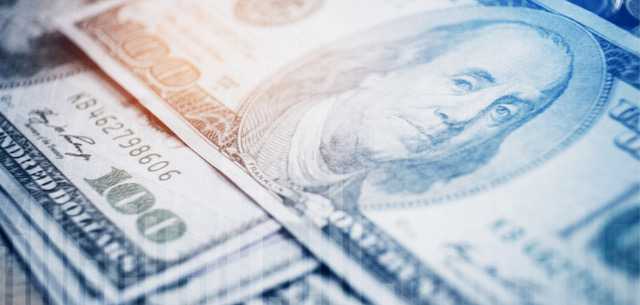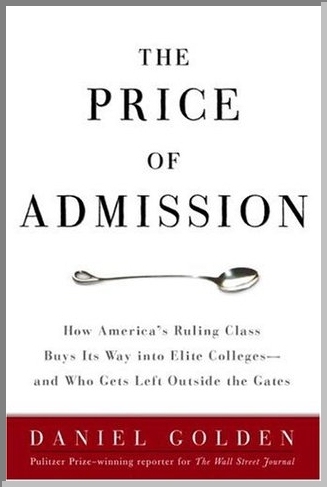
| “Standardized test scores are manufactured, Transcripts are made-up…Admission decisions are issued based on fabricated extracurricular activities, ghostwritten personal essays and the size of the check written by the parents of the applicants.” (NY Times, March 17, 2019) |
When the “paper of record” starts taking pot shots at the U.S. education system’s bias toward the wealthy and powerful, something big has to be afoot. What could be bigger, at least from a main stream media’s preoccupation with readership, than nattering about a bunch of wealthy families brought low on the heels of a big “reveal” —caught doing what wealthy Americans have been doing since the first settlers stepped foot on American shores, kicked out or slaughtered the real owners of the land, and set up a thriving capitalist economy where wealth and privilege separated winners and losers. This latest band of miscreants are small-time operators by comparison to the real heavy hitters (in the U.S. we call them winners), the multi-millionaires and billionaires, who don’t run afoul of the law but still manage to buy their kid’s way into an elite college. At the bottom of the pile are the middle-class kids with all the credentials that colleges insist they’re looking for – high grades, upper-echelon entrance exam scores, a laundry list of extra-curricular activities. What’s missing are the close ties really wealthy families maintain with the chief fundraiser of the college, almost always the president.
The preferences handed out to the mega-wealthy are in reality legal bribery (as compared to the “illegal” bribery currently on display). The top one-tenth of one percent of Americans don’t have to pay a scam artist to phony up academic records or hire a ringer to take a test. All they have to do is come up with the money for a showy new building — libraries, museums, science buildings are the most popular —have the family name inscribed on the wall and before you know it they’re entitled to all the bennies a grateful institution can bestow.

Here’s one example among probably hundreds. Back in the early part of the last century, there lived an excessively wealthy family named Beinecke. Lauded as generous, civic-minded donors (which they may well have been), they were also capitalists looking to get a return on their investment (ROI). In short order, a deal was consummated. The Beinecke Rare Book and Manuscript Library at Yale was erected serving as both a permanent monument to the family name and an admission ticket for Beinecke heirs. Moral of the story? Wherever there’s an elite college, there’s bound to be a magnificently wealthy family (the Kennedys at Harvard) making it their way station on the road to a lifetime of entitlement for their heirs.
The illegal form of bribery, on the other hand, is down and dirty involving a motley assortment of rich, but not fabulously so, families and a cottage industry of enablers — college coaches, athletic directors, test proctors and a host of other functionaries looking to make a quick buck. To the accompaniment of great fanfare, these families are arrested, hauled away in handcuffs, forced to appear before a judge and put up bail. The families with the juice to have their names inscribed on a wall wind up in a much different place —while their children take coveted spots at the likes of Harvard, Yale, and Princeton, their parents are hailed as philanthropists and celebrated for making the world a better place,

Which brings us to the poster child of the unfair advantage crowd—Jared Kushner, President Trump’s son-in-law and top advisor. As a mediocre student at a fancy prep school, he was given zero chance to get into an elite college. Imagine the surprise of counselors, teachers, even his fellow students when Harvard came calling. One administrator at the school pointed to the dark side of this pay to play admission game — ‘It was a little bit disappointing because there were at the time other kids we thought should really get in on the merits, and they did not.’
Places at elite colleges are for sale in today’s America. Forget about unimpressive grades, undistinguished SAT scores and non-existent community service credentials —daddy’s (in rare cases mommy’s) billions are the only credential that matter. Hewing to the script, in 1998, when Jared was ready to enter college, daddy Kushner came through big time with a pledge of $2.5 million to Harvard (worth a whopping $3.9 million today). Shortly thereafter Jared found himself ensconced in elegant digs at Harvard. But wait, there’s more. By some mysterious alchemy, Jared’s brother was also found worthy of a place at Harvard. Leave it to a sharp businessman like Charles Kushner (although his relative lack of pedigree earned him a stretch in the slammer) to leverage his gift to encompass two admissions and, in the bargain, secure a profitable tax deduction. Call it a crisis of conscience or more likely the fear of unfavorable publicity, but this was one gift Harvard failed to publicize, foregoing the usual adulatory press release about the donors. Although Trump’s election let the cat out of the bag, once again wealth worked its magic on the corporate press and Harvard dodged a bullet.
What’s the difference between a high-roller who donates a building to secure a golden ticket for his offspring and a medium roller who pays a con artist to phony up an offspring’s credentials? The similarities are impressive. All of the parents used their money to game the system and secure a spot at an elite college their son or daughter had not earned. The major difference —the high rollers escaped the long arm of the law.
Thirty-three parents and an assorted bunch of bribe-takers are not the reason a deserving kid with all the “right stuff” doesn’t get into an elite school. It’s not even that their parents don’t have the money to pay a crook to phony up their SAT scores, revise their transcripts or bribe a college coach to give them an athletic preference (why colleges should reserve places for kids whose only qualification is their athletic prowess is a subject for another SA post).
The real blame lies in a corrupt system that consigns working people and their heirs to the back of the economic bus. It’s no secret that rich billionaires live high, wide, and handsome. Their handmaidens —elite institutions provide the background music for their success. Here’s the proof. Of the 1,687 private four-year colleges in the U.S. in 2017, 42% (709) reserve places for children of former alumni (usually card-carrying members of the ultra-rich). It’s called legacy preferences. At Harvard, one of the colleges named in the recent scandal, children of alumni have an acceptance rate of 33%, while ordinary Joes and Janes (excluding, of course, non-alumni parents willing to fork over millions to build a library) have an acceptance rate of 5%.
Hope has become the coin of the realm for working and middle class Americans striving to give their high-achieving kids the opportunity to attend an elite school. Witness the $1.2 billion that “admission counseling and test preparation” companies are raking in every year. While getting into an elite institution is an uphill battle, what awaits the usually indebted grad is equally obnoxious. Life in the richest country in the world for the forty-four million young people owing $1.5 trillion in student loans (average loan amount $37,000) is anything but a walk in the park. With good-paying jobs as scarce as hen’s teeth for those not blessed with billionaire parents, hourly, part time gigs with no benefits, no health insurance, and no vacation are often the only choice. Having trouble paying back your loan if you want to eat and pay the rent? Too bad. Student loans are the only form of consumer debt not dischargeable in bankruptcy (if you’re struggling to pay off a student loan, Joe Biden is not your guy. Click here to find out why).
The reality is not that the American higher education system is rigged for the rich but that the entire economy is. To the rich go massive tax breaks that create a hole in the budget that the rest of us will be obliged to fill with higher taxes, a federal budget light on social services, a federal minimum wage that hasn’t changed in a decade and federal and states laws that destroy worker protections.
The real fix goes way beyond punishing a few cheaters. “It’s the economy stupid.” In an economy skewed to the rich and powerful, wealth not hard work, giving to get not merit are the keys to success. But change may be coming. It’s not as easy these days to pull the wool over the eyes of Americans struggling to make ends meet. More and more politicians (especially those running to be the 2020 Democratic presidential nominee) are burning up the airwaves with talk of unrigging the system, putting the genie of inequality back in the bottle. Do they mean it or are we in for more of that “hopey-changey” malarkey? Maybe it’s time to fall out of love with that old American standby, the “land-of-equal-opportunity myth. Surely a misbegotten love is worse than no love at all.
NB: For those of you who want a “down and dirty” look into the sordid details of legacy preference at U.S. colleges, click here.
795 total views, 1 views today

